Iranian Minister Claims Borders With Afghanistan Are ‘Calm’
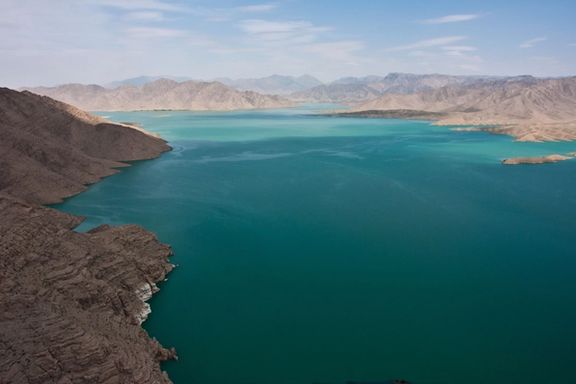
Iran’s interior minister claims the borders with Afghanistan are calm and traffic is normal after recent clashes between the Taliban.

Iran’s interior minister claims the borders with Afghanistan are calm and traffic is normal after recent clashes between the Taliban.
“We warned the Afghan rulers that they should train their forces and be watchful of their acts, otherwise Iran's border guards defend national interests and do not allow anyone to violate the security of borders,” said Ahmad Vahidi on Saturday.
In the past days, there were some issues, but they were dealt with forcefully to maintain security at the borders, said Vahidi who is an ex-IRGC general, wanted by Interpol for his role in the bombing of a Jewish community center in Buenos Aires in 1994.
“Of course, terrorists try to abuse the tensions at borders, but they should be aware that they will be punished for their actions.”
In late May, clashes at the border over water rights claimed the lives of at least two Iranians and one Taliban soldier.
Disputes between Tehran and Kabul have risen over Taliban’s refusal to share the waters of the Helmand River in violation of a 1973 treaty.
Iran's parched eastern regions is seriously threatened if the Taliban prevent water from reaching Iran. Another Iranian official said Saturday that Kabul has agreed to allow Iranian experts examine the water reservoirs inside Afghanistan.
Earlier in May, Iranian President Ebrahim Raisi warned the Taliban over disregarding Iran's water rights under the 1973 treaty. The Taliban rejected Raisi's apparent threat, with a former Taliban official mocking Raisi in a video that went viral.
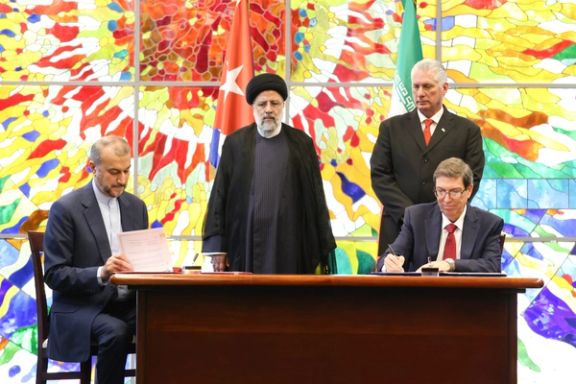
Iran’s President Ebrahim Raisi told his cabinet ministers not to overlook the implementation of 35 agreements he signed during his tour of three Latin American countries this week.
The government’s official news website IRNA in a long report Saturday highlighted Raisi’s trip to Venezuela, Nicaragua and Cuba, with the headline of “35 cooperation agreements signed under America’s nose.”
Iranian officials and government media have been emphasizing the significance of the three-nation tour as a challenge to the US “in America’s backyard.”
However, Iran is in relative international isolation as no Western countries and allies invite Iranian leaders or visit the country themselves. The three Latin American countries Raisi visited are also struggling economically under US sanctions and leftist ideological rule.
Raisi emphasized during his trip solidarity against the United States and cooperation to overcome sanctions.
During his meeting with Cuban president Miguel Diaz-Canel Raisi said, "The conditions and circumstances in which Cuba and Iran find themselves today have many things in common. Every day our relations grow stronger."
The Cuban president also praised close ties with Iran. "Venezuela, Nicaragua, Cuba and Iran are among the countries that have had to heroically confront sanctions...threats, blockades and interference by Yankee imperialism and its allies with a tenacious resistance, This visit reinforced our conviction that we have in Iran a friendly nation in the Middle East, with which to confide...and talk about the most complex global issues."
However, there is little in economic cooperation and trade the three countries can achieve with Iran, which faces a serious economic crisis, with by 70-percent inflation and a battered currency.
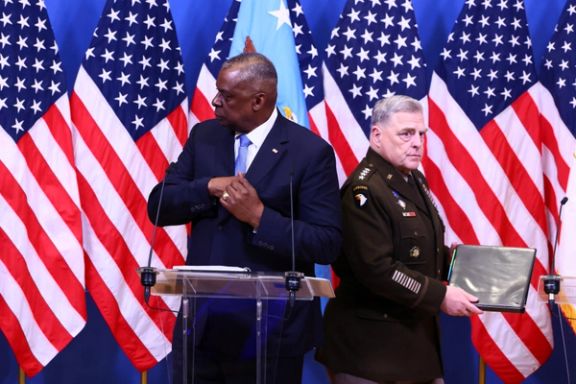
The United States has assured Israel it will keep its military edge and freedom to act against Iran, as it aims for an interim nuclear deal, a report said Friday.
Israeli Channel 12 news reported that US Secretary of Defense Lloyd Austin and Israeli Defense Minister Yoav Gallant met Thursday on the sidelines of NATO meeting in Brussels and reached understandings in the light of an emerging nuclear deal between Tehran and Washington.
In recent weeks, multiple news outlets have reported on direct and indirect US Iranian talks on reducing tensions, a possible interim unwritten agreement to slow down Tehran’s nuclear program and release of Americans held in Iran.
The Biden administration has repeatedly denied any deals with Iran, acknowledging that contacts were made to make clear what US demands were. The latest denial came from Secretary of State Antony Blinken on Friday during a press conference.
“With regard to Iran, some of the reports that we’ve seen about an agreement on nuclear matters or, for that matter, on detainees are simply not accurate and not true,” Blinken said.
Channel 12 news also quoted senior security officials as saying that cooperation with the United States has increased on the issue of Iran, involving the Israeli Defense forces in joint efforts.
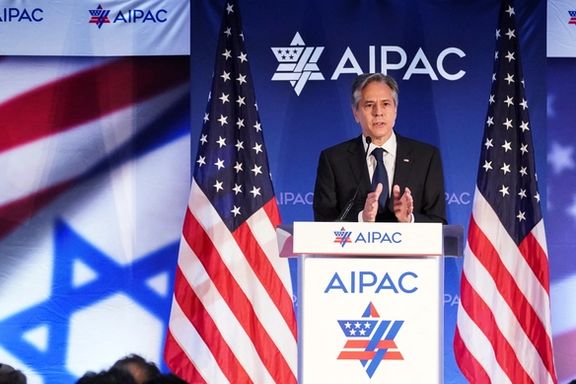
Washington has assured Jerusalem that it will maintain its military edge over Iran, and Austin also made clear to Gallant that in addition to close cooperation over Iran, Israel will maintain a free hand to act against adversaries.
Israel has made clear that if it concludes Iran is close to obtaining nuclear weapons, it will not limit itself by any agreements the United States and others might have reached with Tehran and will take military action to stop what it sees as an existential threat.
Israeli officials and media indicate that some sort of a deal between Washington and Tehran is moving forward and that Israel will accept the general parameters of a possible agreement and will not try to foil it.
Israel’s ambassador in the US Michael Herzog was quoted as saying, “Diplomacy isn’t necessarily a bad thing,” during an event hosted by the Democratic Majority For Israel, according to Haaretz.
“As far as we’re concerned, diplomacy in and of itself, and such understandings, are not necessarily bad to the extent that they can help deescalate a situation,” Herzog said.
Iran has acknowledged diplomatic efforts behind the scenes but has been cautious in heralding any imminent deals.
Nour News, affiliated with the national security council on Friday said the White House is showing "positive signals of changing its approach toward Iran in the past few months".
Regarding reports about a possible nuclear deal, the website did not express optimism, but its claim of positive signals was an indication of some satisfaction at the security council.
‘Reformist’ media in Tehran, critical of the ruling hardliners, continued to argue for flexibility and a deal that would lift crippling US sanctions imposed since 2018 when former President Donald Trump pulled of the 2015 JCPOA accord.
Aftab News close to former President Hassan Rouhani in an article on Saturday recounted the “trillions of dollars” in damages to Iran’s economy resulting from its nuclear dispute with the West over a period of two decades.
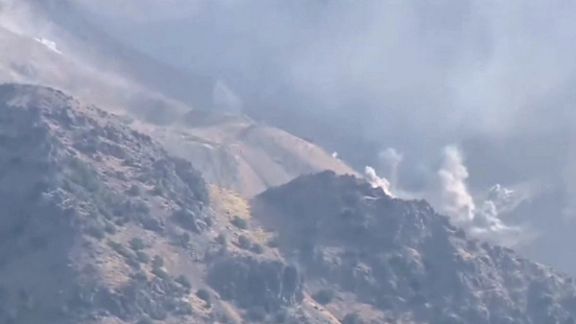
In clashes between Iran’s Revolutionary Guards and Kurdish groups in the west of the country, at least one IRGC member was killed on Friday.
“A clash took place between the Islamic Revolutionary Guard Corps forces and one of the Kurdish groups in the villages of Darreh-ye Tafi and Sardush on the western edge of the Zarivar Lake in Marivan, Kordestan province, during which an IRGC agent named Razgar Tabireh was killed,” the IRGC-affiliated Fars News Agency reported Saturday.
The name of the Kurdish group is not mentioned in this report, but some sources say PJAK was the party involved in clashes with the IRGC on Friday evening.
The Kurdistan Free Life Party, or PJAK is a leftist opposition armed militant group. It has waged an intermittent armed struggle since 2004 against the Iranian regime, seeking self-determination through some degree of autonomy for Kurds in Iran.
Hengaw Human Rights Organization, a Kurdish rights group, also reported on Tuesday that a member of the Revolutionary Guards was killed during a clash with PJAK in the Kosalan area of Sarvabad.
After "Woman, Life, Freedom" protests the pressure on Kurdish civil groups and activists has increased significantly.
According to Hengaw, within the past four days, at least 160 citizens from Eslamabad-e Gharb in Kermanshah Province were summoned and interrogated by security agencies.
These measures were taken after two IRGC servicemen were killed in this region.
On Tuesday, France-based Kurdistan Human Rights Network (KHRN) said the heights of Kosalan mountain near the city of Sarvabad in Kordestan province were shelled while IRGC forces were deployed to the region in the latest attacks against Iran's Kurdish groups.
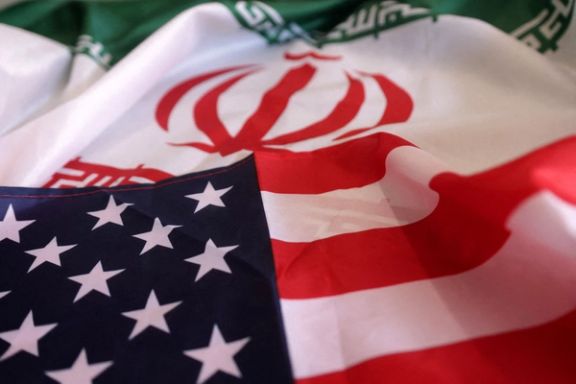
Iran's Nour News close to the national security council says the White House is showing "positive signals of changing its approach toward Iran in the past few months".
Regarding reports about a possible nuclear agreement between Iran and the United States, the website did not express optimism, but claimed Washington is giving positive signals.
"As the American media has speculated, one cannot be optimistic about a rapid agreement on issues related to Iran's nuclear matter," added the piece published on Friday.
“However, raising this issue by two American media outlets, which are known for their connection with the US political and security agencies, shows the White House is seeking to convey positive signals and return to the negotiating table, which Iran has never left.”
Nour News also claimed the new US approach is the result of the Islamic Republic's efforts to suppress the nationwide protests, as well as Tehran's decision to revive ties with Riyadh.
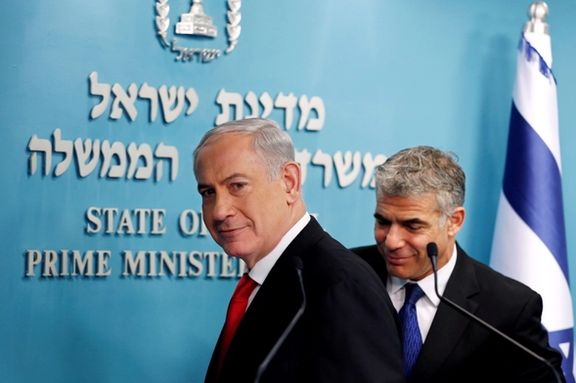
Meanwhile, Israeli opposition leader Yair Lapid slammed Netanyahu for allowing the agreement between Iran and the US to take place, claiming Netanyahu’s inability to influence the Biden Administration is due to the controversial judicial overhaul.
“Despite attempts to call it something else, what the US and Iran are about to sign is a nuclear agreement. It’s the same agreement that they tried to sign during [the Bennett-Lapid] government and we were able to prevent,” the former prime minister noted.
This comes as Israel's ambassador to Washington, Michael Herzog said in a speech on Thursday that “diplomacy [with Iran] isn’t necessarily a bad thing”.
In recent days, Axios and the New York Times reported on the talks between Iran and the United States.
The New York Times quoted the officials of the three countries as saying that “the Biden administration has been negotiating quietly with Iran to limit Tehran’s nuclear program and free imprisoned Americans.”
“The US goal is to reach an informal, unwritten agreement, which some Iranian officials are calling a political cease-fire. It would aim to prevent a further escalation in a long-hostile relationship that has grown even more fraught as Iran builds up a stockpile of highly enriched uranium close to bomb-grade purity, supplies Russia with drones for use in Ukraine and brutally cracks down on domestic political protests.”
Axios last week reported that US and Iranian officials held indirect talks in Oman last month with Omani officials shuttling between the two sides and passing messages.
The report also quoted five Israeli lawmakers saying that the mini-agreement includes Iranian commitment not to enrich uranium above the level of 60%, a US willingness to allow for the release of billions of dollars in Iranian funds that are currently frozen, and a prisoner exchange deal.
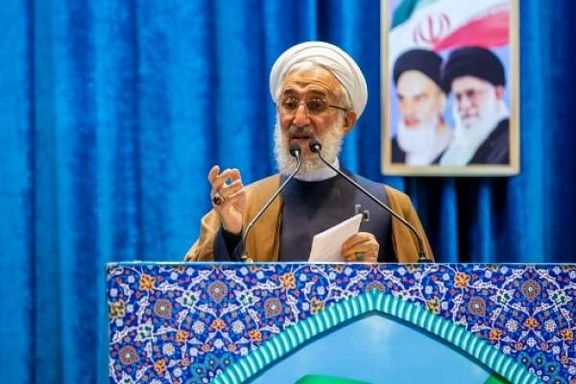
An Iranian cleric claims Iran has developed an aircraft that can show 15 kilometers underground where mines and tanks are located.
Friday Prayer Imam of Tehran, Kazem Seddiqi, on Friday made the odd remark during his sermon saying that one of the results of the nuclear industry is exploration.
“We have oil and gas resources underground, but it is important to understand where in the country we have these resources.”
Iran, which enriches uranium to 60 percent purity without any civilian use, tries to claim that it needs the controversial nuclear program for scientific and industrial progress.
He further expressed hope that with the launch of such new tools, the welfare of the Iranian people will be promoted.
“We have serious problems in the field of drinking water in the country, the nuclear industry has been able to prepare sea water for drinking in the southern city of Bushehr and some other places,” he added.
The Islamic Republic is known to make unfounded claims of producing of high-tech devices and weapons as a show of deterrence and as propaganda for domestic audiences.
Last year, Iran claimed it has produced a laser weapon, saying the Islamic Republic is now among the few countries in the world that can build such weapons.
Although Iran wanted to highlight its laser weapon capabilities to target drones and cruise missiles, the directed-energy weapons including lasers are still at their experimental stage even in more advanced countries, and are not seen as practical, high-performance military weapons, because a laser generates a beam of light which needs clear air, or a vacuum, to work.
In the early months of the coronavirus pandemic the IRGC unveiled Mosta'an 110, a simple-looking device that it said was capable of detecting the virus from 100 meters. The episode turned into public ridicule.